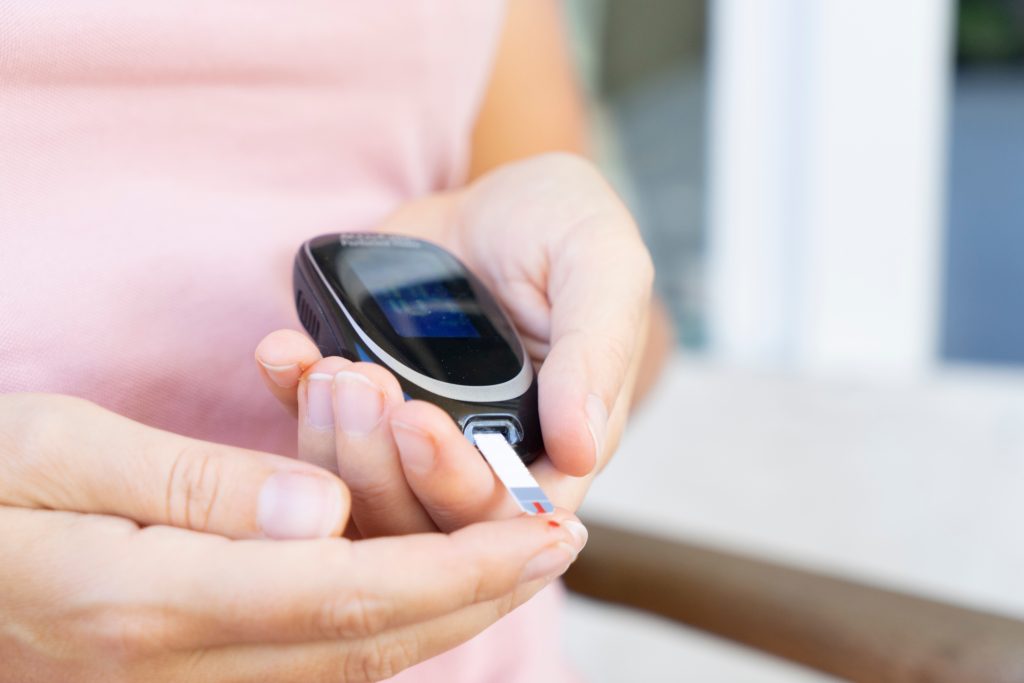August 13, 2021
What is Erectile Dysfunction (ED)?
Erectile dysfunction may not be as openly discussed as other health problems such as diabetes or high blood pressure. Until very recently, discussing sexual issues has been somewhat taboo in our society. However, with increased awareness and advocacy efforts, once-taboo topics such as erectile dysfunction have garnered more attention. While it still may be somewhat uncomfortable to discuss, it is critical to understand what erectile dysfunction is, what can cause erectile dysfunction, symptoms of erectile dysfunction, and ways to treat it. If you suffer from erectile dysfunction, you are not alone.
What is Erectile Dysfunction, and How Common Is It?
Erectile dysfunction (ED) refers to a man’s difficulty in getting and maintaining an erection. Complete and severe erectile dysfunction describes the inability to get and keep an erection long enough to perform sexual intercourse. Erectile dysfunction is a common medical health problem, and studies indicate that 10% of men between the ages of 40-70 years old experience total or severe erectile dysfunction.
Erectile dysfunction, like many other health concerns, can range from mild to severe. In men ages 40-70 years old, 25% of them experience recurrent or moderate erectile problems.
Erectile dysfunction is highly dependent on a man’s age, with the general rule of thumb being that the older a man gets, the higher their risk of experiencing some form of erectile dysfunction. However, young men can still experience erectile dysfunction. Studies indicate that erectile dysfunction impacts approximately 5-10% of men younger than 40 years old.
Symptoms of Erectile Dysfunction
As previously mentioned, ED can range from mild to severe. Some common symptoms of erectile dysfunction can include:
- Being unable to get an erection at all.
- Being able to get an erection but not able to sustain it long enough for sexual intercourse.
- Being able to get an erection sometimes, but not every time you want to get an erection.
 What Causes Erectile Dysfunction?
What Causes Erectile Dysfunction?
Erectile dysfunction can be caused by several things, from physical health problems to even psychological issues. Although the risk of erectile dysfunction increases as you get older, it is vital to note that age does not cause erectile dysfunction. Some common risk factors for erectile dysfunction include:
- Heart and blood vessel disease
- Type 2 diabetes
- Chronic kidney disease

- High blood pressure
- Multiple sclerosis
- Radiation therapy and prostate surgery
- Injury to the penis, prostate, bladder, and spinal cord
- Surgery for bladder cancer
- Atherosclerosis
- Peyronie’s disease
- Certain medications
Surprisingly, some mental health and psychological disorders can contribute to erectile dysfunction and worsen the severity of erectile dysfunction. Common psychological problems that can impact ED include:
- Low self-esteem
- Stress about life in general and stress about sexual performance
- Anxiety disorders.
- Fear of failing sexually
- Depression
- Guilt about sexual ability and performance
Lifestyle choices and behavior can also impact your risk of developing erectile dysfunction and can exacerbate symptoms. These factors include:
- Smoking
- Not engaging in physical activity and exercise regularly
- Using illegal drugs
- High alcohol consumption
- Being overweight
What Medications Cause Erectile Dysfunction?
There is a strong possibility that you have heard or read about certain medications potentially causing erectile dysfunction. As with most medications, side effects are possible, and with many medications, erectile dysfunction is one of those potential side effects. Medications that can cause erectile dysfunction include:
- Medications used for prostate cancer therapy or antiandrogens
- Ulcer medication
- Medications that are appetite suppressants (reduce your appetite)
- Blood pressure medication
- Antidepressants
- Prescription sedatives or tranquilizers (used to treat sleep or anxiety issues)
The Impact of Erectile Dysfunction
The impact of erectile dysfunction can have significant negative consequences on a man’s life, and understandably so. Sexual intimacy represents a vital part of a relationship. The experience of ED can contribute to dysfunction in a man’s relationship, self-esteem, finances, and overall quality of life. Studies estimate that:
- Between 10-20 million men have gotten negatively impacted by erectile dysfunction.
- 400,000 outpatient doctor’s visits are a result of ED annually.
- ED accounts for 30,000 emergency room visits a year.
- ED costs Americans roughly 146 million dollars every year.
Erectile Dysfunction Treatment
While it may be uncomfortable, talking to your partner or medical professional is a healthy first step in effectively treating erectile dysfunction. By talking about your symptoms, your doctor or medical professional can help you determine steps to reduce your symptoms. For many people, changing their lifestyle and daily habits can effectively treat erectile dysfunction like quitting smoking, reducing and eliminating alcohol and drug use, increasing exercise, and reducing weight.
For many people, changing their lifestyle and daily habits can effectively treat erectile dysfunction like quitting smoking, reducing and eliminating alcohol and drug use, increasing exercise, and reducing weight.
Your doctor can also help you determine your source of erectile dysfunction, including psychological factors. If psychological factors are contributing to your ED, your doctor may recommend counseling. Counseling can help you address your underlying mental health problems that may be contributing to your ED.
Your doctor may want to make changes to your medication if they are contributing to your ED. Also, your doctor may prescribe medication specifically to treat erectile dysfunction. The FDA has approved medications for the treatment of erectile dysfunction. These medications can include:
- Stendra
- Viagra
- Cialis
- Levitra/Staxyn
Medication works by increasing the blood flow to the penis. More specifically, medication relaxes the muscles helping promote blood flow and treat the symptoms of ED. You must discuss with your doctor any medications you already take to prevent serious side effects when mixing ED medication with other types of medicine.
How Do You Know You Have Erectile Dysfunction?
If you experience any of the symptoms listed above and feel you may be experiencing erectile dysfunction, talk to your doctor about your concerns. Your doctor can work with you to create a treatment plan based on your specific problems and health goals. There are many ways to treat erectile dysfunction, from lifestyle changes, medication adjustments, counseling, and medication.
Healthcare Associates of Texas can help you or a loved one treat erectile dysfunction. To see how we can help, request an appointment today. Remember, you are not alone. Treatment has never been more accessible, and with the stroke of a few keys, you can determine what services available to you.
DISCLAIMER
The information featured in this site is general in nature. The site provides health information designed to complement your personal health management. It does not provide medical advice or health services and is not meant to replace professional advice or imply coverage of specific clinical services or products. The inclusion of links to other web sites does not imply any endorsement of the material on such websites.

